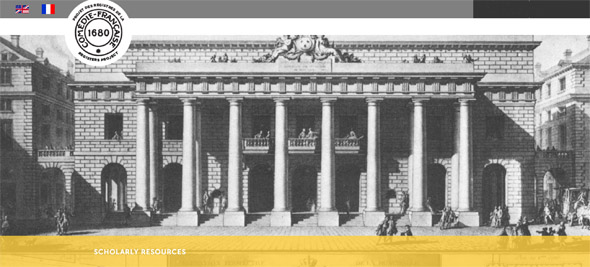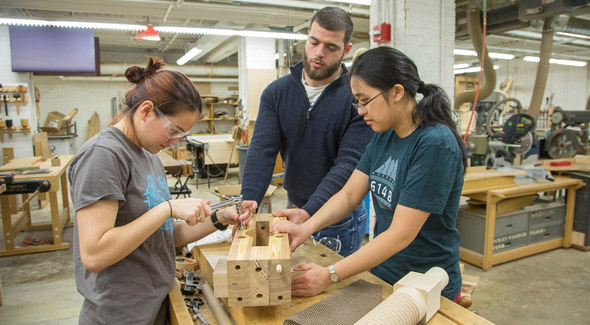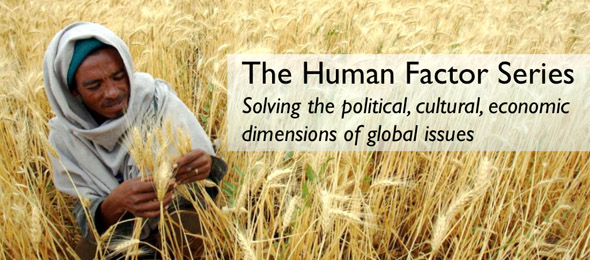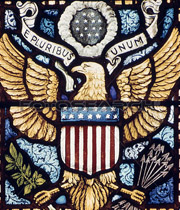Said and Done
Summer 2016 Edition
Published by the Office of the Dean
MIT School of Humanities, Arts, and Social Sciences

QUOTABLE
"Whatever our background, a fair and viable justice system must be one of the bedrocks of American democracy."
— Melissa Nobles, Kenan Sahin Dean
RESEARCH
SOCIAL INNOVATION
A Sampler of MIT Research on Justice, Economic Equity, Civil and Human Rights
Sampler of Research | Letter from President Reif | 2015 Interview with Dean Nobles
ABDUL LATIF JAMEEL POVERTY ACTION LAB
J-PAL North America selects five goverments for State and Local Innovation Initiative
J-PAL North America, a research center at MIT SHASS, has selected five U.S. state and local governments as the first cohort to participate in the State and Local Innovation Initiative, which supports governments in generating applicable lessons about which social programs work, which work best, and why.
Story at MIT News | About the Initiative
ANTHROPOLOGY
Why do women leave engineering? | Susan Silbey
Study reveals that group dynamics deter many women in the profession. What emerges is a picture in which female engineering students are negatively affected at particular moments of their education — especially when they engage in team-based activities outside the classroom, where, in a less structured environment, older gender roles re-emerge.
Story by Peter Dizikes at MIT News | Paper
POLITICAL SCIENCE
Democracy now
Political scientist Evan Lieberman, who studies ethnic identity and African politics, says: “A big strand in my work has been to think about the important ways in which social identity, especially racial and ethnic identities, become really important in thinking about policies and justice in distributive issues."
Story by Peter Dizikes at MIT News | Evan Lieberman
MIT SCHOOL EFFECTIVENESS AND INEQUALITY INITIATIVE (SEII)
Economics PhD student Elizabeth Setren delves into charter schools
Setren brings data to bear on questions about local education policy. “I want to continue doing research to help understand educational inequities," she says, "particularly with special needs students and technology, but also in other areas, to inform the debate and help us better understand what might be possible solutions.”
Story at by Curro Caruso at MIT News | About SEII
HISTORY
3 Questions: Jeffrey Ravel on bringing data to cultural history
Ravel, head of the MIT History faculty, and his colleagues in the Comédie Française Registers Project have digitized over 100 years of theater records to learn more about the intersection of popular culture, politics, and social life during the 17th and 18th centuries. In May, MIT and Harvard co-hosted a global conference on the subject.
Interview | Comédie Française Registers Project
POLITICAL SCIENCE
Primary factors
Political scientists Charles Stewart III and Devin Caughey give a brief history of the U.S. primary system and weigh in on the turbulent 2016 Presidential campaign season.
Story by SHASS Communications
LINGUISTICS
Why children confuse simple words
Imagine, for a moment that you are a parent trying to limit how much dessert your young children can eat. "You can have cake or ice cream," you say. But your children continue to insist on having both cake and ice cream. It may well be because they are confusing “or” with “and.” What seems like a clear restriction to an adult can sound, to a child, like an invitation to “Have both!” A study by MIT linguists Danny Fox and Kenneth Wexler shows why kids have the “and/or” confusion despite sophisticated reasoning.
Story by Peter Dizikes at MIT News
SCIENCE, TECHNOLOGY, AND SOCIETY
Groovy science, man! | David Kaiser
In this interview, Kaiser describes our debt to science’s countercultural turn. Lasting contributions from the era include "certain strains of sustainability, design, and manufacture, notions of socially responsible engineering, and artisanal food."
Story by Peter Dizikes at MIT News
"I would like the book to inspire discussion about broader cultural attitudes toward science and technology. We’re living through a remarkably challenging period today about the place of scientific expertise in policy debates."
— David Kaiser, Germeshausen Professor of the History of Science, Program in Science, Technology, and Society, and Professor of Physics, Department of Physics
FEATURE
Mens et manus in the MIT History Workshop
A group of MIT students briefly put away their cell phones this spring to concentrate on a much older information storage and retrieval device: the book. As students built a handset printing press — the kind of press on which the documents of the Renaissance, the Reformation, and the Scientific Revolution were printed — they also gained insight into human systems.
Story by SHASS Communications | Video by Melanie Gonick, MIT News
"The past is an excellent laboratory from which to learn things about humanity and human systems. This empathy and broader perspective is an essential quality for doing great 21st century science and engineering."
— Anne McCants, Margaret MacVicar Fellow, and Professor of History
HONORS AND AWARDS
MIT chapter of the Phi Beta Kappa Society inducts 72 graduating seniors
The Phi Beta Kappa Society, the nation’s oldest academic honor society, held its MIT induction ceremony on Thursday, June 2, 2016, admitting 72 graduating seniors into the MIT chapter, Xi of Massachusetts.
Story | Photo Gallery of the 2016 MIT PBK ceremony
WOMENS AND GENDER STUDIES
Helen Elaine Lee receives 2016 Faculty Ambassador Award
Lee, Professor of Writing and the Head of Women's and Gender Studies, received the award at the annual Multicultural Awards Banquet, a ceremony that recognizes members of the MIT community who go above and beyond in areas of diversity and inclusion.
About | Helen Elaine Lee webpage
MUSIC
Ellen Harris elected to the American Philosophical Society
Harris, Professor of Music Emerita, is among four MIT faculty members elected to the prestigious American Philosophical Society this year. It is the first time in the society’s history that four members from the same institution have been elected. Harris's most recent book is George Frideric Handel: A Life with Friends (W.W. Norton, 2014).
Story | American Philosophical Society | George Frideric Handel: A Life with Friends
SECURITY STUDIES
Barry Posen Named Kissinger Chair at the Library of Congress
Posen, Ford International Professor of Political Science at MIT and director of the MIT Security Studies Program, has been appointed the next Henry A. Kissinger Chair in Foreign Policy and International Relations at the Library of Congress John W. Kluge Center.
News at the Library of Congress
MIT SHASS
Nine SHASS faculty awarded named professorships
Dean Nobles recently announced that nine members of the MIT SHASS faculty have been awarded named professorships. These honored positions afford the faculty member additional support to pursue their research and develop their careers.
Story
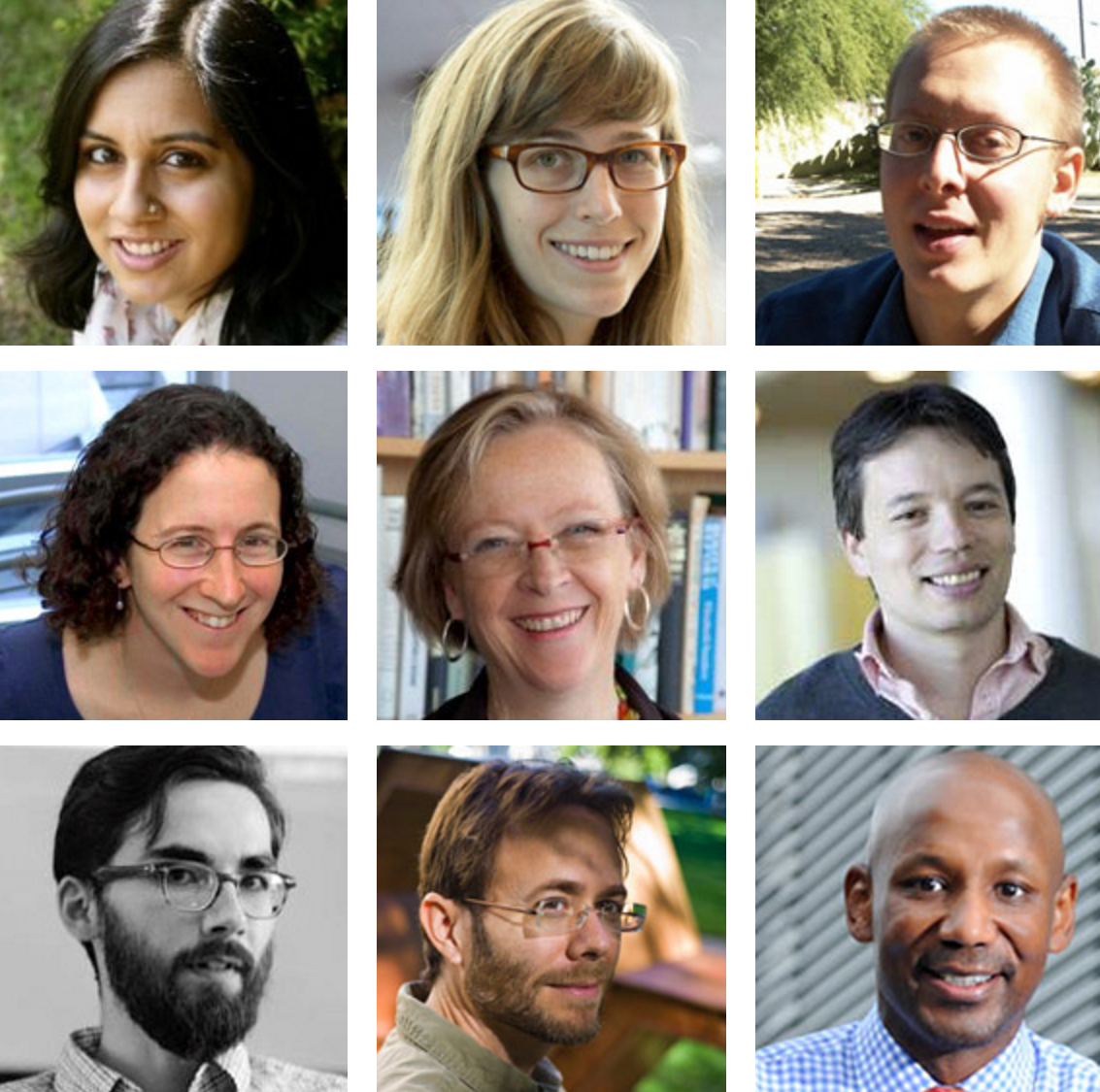
Top row: Sana Aiyar; Catherine Clark; Sasha Costanza-Chock
Middle row: Amy Finkelstein; Deborah Fitzgerald; Daniel Hidalgo
Bottom row: L to R: Justin Khoo; Bradford Skow; Craig Wilder
ANTHROPOLOGY, COMPARATIVE MEDIA STUDIES, LITERATURE
2016 MIT Awards Convocation
SHASS faculty members won several Institute awards this year at the Annual MIT Convocation Awards ceremony. Shankar Raman (Literature) won the Arthur C. Smith Award for contributions and devotion to undergraduate student life and learning at MIT. Stefan Helmreich (Anthropology) won the Frank E. Perkins Award for excellence in graduate advising. Kurt Fendt (CMS/HyperStudio) received an award for innovations in Teaching with Digital Technology.
About | CMS story
GLOBAL STUDIES AND LANGUAGES
Margarita Ribas Groeger honored with MAP Mentor of the Year award
The award, given by MIT’s Mentor Advocate Partnership Program of the Office of Minority Education, was presented at the MAP/EMAP End of Year Celebration. Groeger is Senior Lecturer in Spanish, and directs the Spanish Language program at MIT.
Groeger website | GSL website
POLITICAL SCIENCE
Graduate student Mark Bell receives Best Paper Award at APSA
Bell's “What Do Nuclear Weapons Offer States? A Theory of State Foreign Policy Response to Nuclear Acquisition” is the co-recipient of the award for the best paper presented by a graduate student in a foreign policy panel at the American Political Science Association meeting.
About | APSA website
SCIENCE, TECHNOLOGY, AND SOCIETY
MIT SHASS alum Sheila Xu ’14 awarded Fulbright grant for international research
Xu, who graduated from MIT in 2014 with a BS in Science, Technology, and Society (STS), and Earth, Atmospheric, and Planetary Sciences, has received a U.S. Fulbright Student grant to Italy in Deafness Studies. In addition, seven MIT graduates and one undergraduate received Fulbright grants.
Story
FEATURE
MIT Campaign for a Better World
"Humanity faces urgent challenges — challenges whose solutions depend on marrying advanced technical and scientific capabilities with a deep understanding of the world’s political, cultural, and economic complexities." — L. Rafael Reif, President of MIT
Join Us
FEATURE | THE HUMAN FACTOR SERIES
Solving the economic, cultural, and political dimensions of major global challenges
The ongoing Human Factor series from MIT SHASS highlights research and perspectives on the human dimensions of global challenges. Contributors describe humanities, arts, and social science research that generates social innovation, and share ideas for cultivating the sociotechnical collaborations needed to solve the major issues of our time.
Browse the Series
How does culture help solve our global environmental issues?
Interview with MIT Anthropologist Susan Silbey
IN THE MEDIA
SHASS In the Media | Summer 2016
For more of the many recent media stories about SHASS research and faculty, visit the complete
In the Media section
ECONOMICS
Trade with China and U.S. politics | David Autor
How has trade contributed to the divisive atmosphere of U.S. politics? To understand the relationship, The Washington Post looks at recent research on international trade co-authored by MIT economist David Autor.
Story at The Washington Post
HISTORY
Making amends, Georgetown president meets with descendant of slaves | Craig Wilder
In an article on the way universities have begun to respond to their historical ties to slavery, The New York Times quotes MIT historian Craig Wilder, who remarks, “Georgetown has made a decision to recognize the humanity of the problem they’re dealing with, to treat it as more than a public relations problem.” Wilder is the author of Ebony and Ivy: Race, Slavery, and the Troubled History of America’s Universities (Bloomsbury Press, 2013).
Story at The New York Times | About Ebony and Ivy
CENTER FOR CIVIC MEDIA | CMS + MEDIA LAB
The perils of using technology to solve other people's problems | Ethan Zuckerman
"It’s rare that technology provides a robust solution to a social problem by itself. Successful technological approaches to solving social problems usually require changes in laws and norms, as well as market incentives to make change at scale."
Commentary at The Atlantic

ECONOMICS AND MANUFACTURING
What the 2016 U.S. election is really about | David Autor
Is globalization the underlying issue being debated through the U.S. Presidential election? NYU’s Edward Golberg cites research by MIT economist David Autor indicating that the U.S. job slide began well before China's rise as a manufacturing power. The phenomenon is driven by technology.
Story at the Huffington Post
COMPARATIVE MEDIA STUDIES + MEDIA LAB
Public monitoring by citizens
Ethan Zuckerman, the director of the MIT Center for Civic Media, discusses the importance of public monitoring to hold institutions accountable for wrongdoing, a practice that benefits enormously from new technologies.
Story at The Atlantic
ECONOMICS AND VOTER ANGER
In wake of Brexit, addressing voter anger
MIT economist David Autor, cited in this article, notes "that trade boosterism has actually in some ways been the enemy of trade policy and a mature conversation that recognizes that these costs are real, that we should recognize the benefits of trade and recognize that certain individuals are going to be worst off, and then develop policy that helps mitigate those adverse impacts. That's much more effective, more palatable in the long run than simply saying, It's good for you, everyone benefits. That's not true.”
Article at the Wall Street Journal
STAY IN TOUCH
SHASS stories on MIT News
Bookmark this page
Social media
Facebook | Twitter
Publications Directory
Online portal to all MIT SHASS publications
Fields of Study
Take the TOUR de SHASS
Said and Done is published by the Office of the Dean
MIT School of Humanities, Arts, and Social Sciences
Editor and Designer: Emily Hiestand, Director, SHASS Communications
Publication Associate: Daniel Pritchard, SHASS Communications
Published July 13, 2016
About the MIT School of Humanities, Arts, and Social Sciences
MIT champions the power of STEM + SHASS fields, both for research and for educating great engineers, scientists, scholars, and citizens.
Making a better world — Generating solutions for the great challenges of our age requires both advanced technical and scientific knowledge and a deep understanding of the world's human complexities. MIT-SHASS researches and advances the cultural, political, and economic dimensions of innovation — the broad range of human realities, from deeply-felt cultural traditions to building codes to political tensions, in which science and technology issues are embedded.
Excellence — In 2015, MIT's Social Science disciplines were ranked first in the world, and MIT's Humanities and Arts disciplines were ranked among the top three worldwide.
Research with a global impact — The MIT-SHASS research portfolio is vast, including anthropology, comparative media studies, economics, history, international studies, languages, linguistics, literature, music and theater arts, political science, philosophy, security studies, and writing, including science writing.
Education that empowers — The School teaches every MIT undergraduate, empowering students with cultural and historical perspectives, and critical thinking and communication skills — to help them serve the world wisely and well. The School's seven graduate programs are all recognized as among the finest in the world.
Cultivating leaders — SHASS has a central role in international education at MIT, and in preparing students for leadership at home and on international teams. Through all their SHASS coursework, and in MISTI, the School's pioneering applied international education program, MIT students learn how to work, collaborate, and thrive in cultures around the globe.


